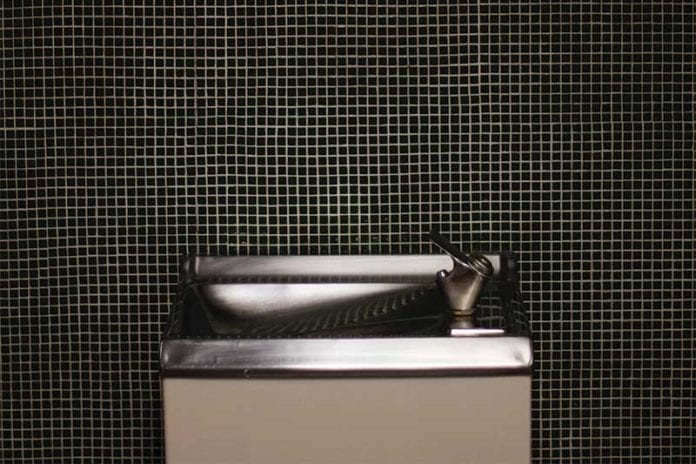Nothing is as important as being well hydrated – and you probably know this better than anyone around. If you have stressed the importance of water in many circumstances, and to many patients, the only question remains: are YOU getting enough water?
Being properly hydrated is crucial. Since our bodies are 70% water, they work better when they are hydrated. It gives you energy, your mental performance and acuity are at peak levels, and you eliminate toxins. Needless to say: water is life. It is what keeps you alive and running well.
Nurses tend to dismiss the importance of hydration when it comes to them because they mistakenly believe it won’t affect them as badly as it affects a sick patient. This assumption couldn’t be any further away from the truth. In fact, since you are working long hours, you more likely than your patients to get dehydrated. And, it’s understandable. With so many things on your mind, you don’t even notice that your body is screaming for water.
With that in mind, here are some tips that will help you stay hydrated during a shift.
See How Hydrated You Really Are
First and foremost, it’s always good to start by seeing where you stand. How hydrated are you this very instant? There is a real quick and easy way to find out, and it’s all about the color of your urine. A well-hydrated body can only produce clear, unconcentrated urine. The darker the urine, the more your body is screaming for water. If we add fatigue, headaches, issues with concentrating and having a weird permanent sense of hunger, then we have, for sure, a serious case of dehydration. However, you need to pay attention to other factors as well. For instance, your urine might look clear, but it can be because you are drinking a lot of coffee or sodas. But that doesn’t necessarily mean that you are hydrated. You can learn more about this here.
Click here to continue reading
Be Pro-Active into Hydrating Yourself Better
If until now, drinking water has been something to do carelessly and without a clear, conscious intent – which might very easily explain how easily one can fall into dehydration, then you might want to consider switching to a more conscious approach.
That will involve first and foremost doing everything you can to ensure you don’t slip into the habit of forgetting to drink water. Turn it into a fun game. Always have a bottle of water with you and set a timeframe in which you have to drink it. For instance, you must drink 500 milliliters of water in one hour. Reward yourself with a treat ( fruit or a slice of vegetable) every time you reach this goal.
Also, try to keep in mind that the amount of water recommended per day for a normal person is 8 glasses. (Yes, you already know this but are you integrating this into your routine?) The math is pretty simple: one glass of water every hour equals eight glasses of water for an 8-hour shift.
Listen Closely to Your body
We know, you have so much on your plate every day, that you don’t have the time to count every glass of water you drink. So, here’s a simpler way you can stay hydrated. Just listen to your body. Take a break every hour or so and ask yourself how are you feeling right now? Does your body feel balanced or is it something that’s missing? Are you feeling good, focused and centered or a bit irritable and tired? Do not allow yourself to get to the point of being seriously dehydrated. If you want to keep those headaches and all the physical discomfort and pain that dehydration brings, you will have to start paying more attention to your body before it suffers.
With a more pro-active approach to keeping yourself hydrated and a bit more awareness into listening to your body and tending to its needs before they get extreme, you will find yourself all bubbly and clear minded again.



Hospital has a new rule can only drink at hydration stations nobody has time to go to this place away from patient care so the majority of nurses go 12 hours with very little to drink. The nurse morale in the hospital is low and many nurses complain of headaches and urinary tract infections. The administration doesn’t seem to care
There is a special place in heaven for good nurses. Take that minute for yourself and know that you deserve it and are sincerely appreciated. Thanks!
I hear you! Recently I have been privileged to become employed by a magnet facility who actually cares for all their employees. We are to take 3-15″ breaks and a 30″ lunch. The charge nurses are tasked with checking with each nurse to see if they have hand their morning breaks and lunches. They step in and cover for nurses to take breaks, pass meds, start IVs, and give discharge instructions to get nurses off the floor. We are also required to have break buddies so that finding someone to break you is not a mystery. Staff break rooms and bathrooms are convenient. So bottoms up! Join your staffing committees (or whatever you facility calls them) and represent the needs of nurses with suggestion and solutions. #healthynursesrule
The only problem with being well hydrated is having to pee. I usually don’t have time to pee until the end of my shift so I purposely drink very little during my shift. I will down a quart of water on my way home, however, and continue drinking when I get home. We nurses also promote nutrition but how many of us eat a good lunch? I might get some graham crackers late morning and not eat again until dinner. Sometimes I think these articles are written for nurses in admin!